LAUDATO SI’
THE ELEVENTH COMMANDMENT:
LOVE THE EARTH AS YOURSELF!
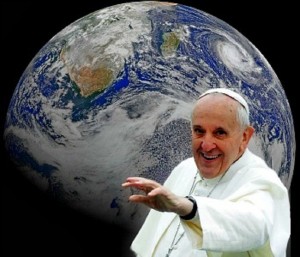 As clearly emerges from the encyclical, the ecological crisis is essentially a spiritual problem. The correct relationship between humanity and the earth or its natural environment was broken with the Fall, both externally and inside us, and this fracture is sin.
As clearly emerges from the encyclical, the ecological crisis is essentially a spiritual problem. The correct relationship between humanity and the earth or its natural environment was broken with the Fall, both externally and inside us, and this fracture is sin.
The fracture in the right relationship between humanity and the earth is due to the growth of individualism in our culture. The search for individual happiness has been made an authentic idea of our time. Ecological sin is due to human greed which blinds men and women to the point of them ignoring and neglecting the fundamental truth that the happiness of individuals depends on their relationships with other human beings. There is a social dimension in ecology which the encyclical brings out in a clear way. The ecological crisis goes hand in hand with the spread of social injustice. We cannot successfully address one without addressing the other.
Ecological sin is a sin not only against God but also against our neighbour. And it is a sin not only against the other of our time but also – and this is a grave matter – against future generations. In destroying our planet in order to satisfy our thirst for happiness, we bequeath to future generations a world that is damaged in an irreparable way, with all the negative consequences that this can have for our lives. We must act, as consequence, in a responsible way towards our children.
In the middle of the discourse of the text of the encyclical we find the following question: ‘What kind of world do we want to leave to those who come after us, to children who are now growing up? This question not only concerns the environment in isolation; the issue cannot be approached piecemeal’. This leads us to ask ourselves about the meaning of existence and the values that form the basis of social life. ‘What is the purpose of our life in this world? Why are we here? What is the goal of our work and all our efforts? What need does the earth have of us?’ If we do not ask ourselves these basic questions, the Supreme Pontiff says, ‘I do not believe that our concern for ecology will produce significant results’ (n. 160).
These questions arise from an observation: today the earth, our sister, which is ill-treated and subject to sacking, laments; and its groans are united to those of all the poor people and all the ‘discarded people’ of the world. Pope Francis invites us to listen to them, calling on everyone and each person – individuals, families, local societies, nations and the international community – to engage in an ‘ecological conversion’, to use the phrase of St. John Paul II, that is to say ‘to change direction’, shouldering the responsibility and the beauty of a commitment to ‘caring for our common home’.
All of this requires what we could define as an ecological ascesis. It is interesting to observe that the great figures of the Christian ascetic tradition were all sensitive to the suffering of all creatures. There are accounts of the lives of saints which present the ascete as a person who weeps for the suffering or the death of every creature and as a person who wishes to lead a peaceful and friendly coexistence with animals. This is not romanticism. It arises from a heart that loves and the belief that between the natural world and ourselves there is an organic unity and an interdependence that makes us share a common destiny, just as we have the same Creator.
The encyclical does not fear to denounce in a forceful way the deterioration that has been extended from human relationships to our relationship with nature. Thus, albeit without proposing technical solutions, it offers very concrete points of inspiration for politics and the economy. The novelty of this papal message is knowing how to conjoin the subject of social justice with the subject of ecology, which had hitherto been treated in a separate way. This conversion of approach achieved by Francis demonstrates how care for humanity which needs freedom from oppression, from injustice and from violence, is always intertwined with respect for the earth, for the work of man and his ‘culture’, and for the stewardship of the creation. And we must be patient if indeed all of this may irritate those for whom, as Pope Francis says, ‘human life is less important than oil and weapons’.
The text of Francis is rich with themes and inspirations; it is a great gift to the Church and to the whole of humanity, a gift that relaunches the yearning for equality and fraternity which have been obscured by the prevailing of an individualist concept of freedom. But it is also a gift to the earth, a response to the sad supplication that Alan de Lille, a monk of the twelfth century, put in the mouth of the earth: ‘Man, listen! Why do you offend me, your mother? Why do you do violence to me who gave birth to you from my insides? Why do you violate me with the plough to make me render a hundredfold? Are the things that I give to you not enough without you extracting it by violence?’
The message of Francis is urgent and clear; to save ourselves, we humans must save ourselves together with the earth. For years I have repeated to myself a commandment that I place next to those in the Bible: ‘love the earth as yourself!’
Lastly, spirituality must penetrate our ecological philosophy through prayer. The encyclical offers some fine examples of how to pray for the safeguarding of the creation of God. From the prayers quoted at the end of the encyclical, I take the following moving passage:
Bring healing to our lives,
that we may protect the world and not prey on it,
that we may sow beauty, not pollution and destruction.
Touch the hearts
of those who look only for gain
at the expense of the poor and the earth.
Teach us to discover the worth of each thing,
to be filled with awe and contemplation,
to recognize that we are profoundly united
with every creature
as we journey towards your infinite light.
COLOMBIA – ECUADOR
On 16-19 June there took place the spiritual exercises of the Delegation of Colombia-Ecuador, with the participation of 24 young Camillians. They were animated by a Jesuit priest of great experience. (PHOTO)
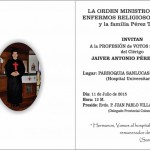


BRAZIL
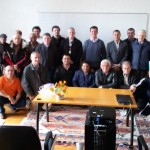


On 1 August 2015 the deacon and Camillian religious Giovanni Antonio Dias will be ordained a presbyter. The solemn celebration will be presided over by Msgr. Dom José Lanza Neto, the bishop of the diocese of Guaxupé.
PERU
The Camillian religious of the pan-American area will meet in Lima at the ‘De la buena morte’ religious house to take part in various meetings that are planned for each year:
24-28 August: ongoing formation
28-29 August: congress on humanisation of the world of health
30 August: fourth pan-American meeting of Major Superiors
1-5 September: nineteenth meeting on the sector of formation and the pastoral care of vocations
Fr. Leocir Pessini will be present for the congress on humanisation and the meeting of the Major Superiors; Fr. Lauren Zoungrana will be present for the sector of formation and the pastoral care of vocations; and Br. José Ignacio Santaolalla will be present at the end of the fraternal visit of the Superior General to the Vice-Province of Peru.
THE PHILIPPINES



VIETNAM
The Camillian Delegation of Vietnam have announced the solemn religious profession of our religious brothers Peter Pham Kim Quyen and Vincent Vu Quoc Toan. The celebration took place on 18 July in Ho Chi Minh City.
TAIWAN
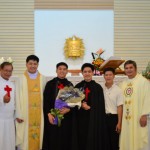


PHOTOGALLERY



On 28 June the celebration also took place of the sixtieth anniversary of the beginning of the evangelisation of the district of Hanshi, the home of those people who are seen as natives. The evangelisation began starting with charity and the health-care service that was offered to these people by our religious brothers of St. Mary’s Hospital of Lotung. Very poor people were treated free of charge and one day one of the people who had benefited from this asked Fr. Ernesto Valdesolo to go to their district and explain in ‘whose name’ they had provided this free charity. Since 1955 to the present day, in the district of Hanshii, there have been about 600 Catholic Christians. The Archbishop of Taipei presided over the celebration.
UGANDA
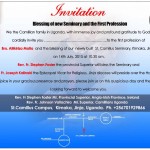


THE PROVINCE OF SICILY AND NAPLES
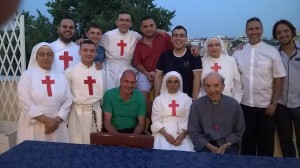


SPAIN
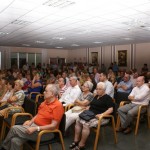


The celebration of the Eucharist was presided over by Don Santiago Gonzales and was followed by a festive meeting in the St. Camillus Hall with music and the greetings of the director of the centre, José Manuel Galan, and the mayor of Tres Cantos, Jesù Moreno. In addition, the new religious of the Camillian community of Madrid were introduced to those who were present.
To end this day of celebrations José Carlos Bermejo, the director of the Humanicacion de la Salud Centre, gave a final speech on the famous phrase of St. Camillus ‘more heart in those hands!’ http://www.camilos.es/noticias/vista-individual-de-la-noticia/article/celebracion-de-la-fiesta-de-san-camilo.html
ITALY – RIETI



ROME – THE CHURCH OF ST MARY MADGALENE
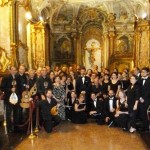


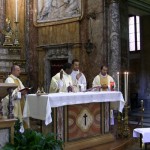


For the occasion, the Superior General, together with the women religious the Daughters of St.
Camillus and the women Ministers of the Sick, sent to all our religious sisters and brothers a message of good wishes and above all of reflections.
ITALIANO, INGLESE, PORTOGHESE, SPAGNOLO , FRANCESE
On 22 July, the feast day of the patron saint after whom the church is named, will be Celebrated: St. Mary Magdalene. Download the programme here in PDF.
HAITI – PORT-AU-PRINCE.
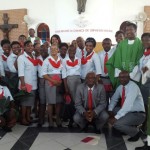


BURKINA FASO
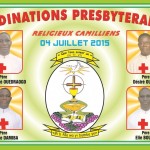


SIERRA LEONE



AGENDA OF THE SUPERIOR GENERAL
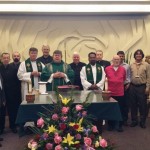


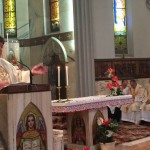


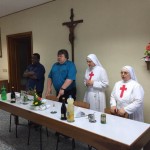





READ THE MESSAGE OF THE FATHER GENERAL



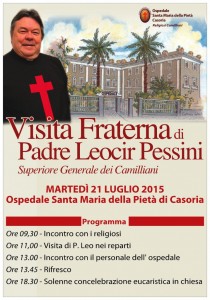


On 23-26 July the Superior General will meet our Camillian religious brothers of the communities of Mottinello (Vicenza), of Trento and of the hospital chaplaincies of Padua and of Treviso, as well as of the ‘St. Camillus’ Parish of Padua.
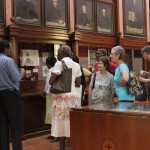


DECISIONS OF THE GENERAL CONSULTA
Br. Joseph Khianiri (Kenya) and Br. Julien Gbaguidi (Benin) have been appointed coordinators for ministry to represent the area of Anglophone Africa and the area of Francophone Africa respectively.
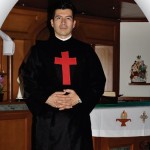


Fr. Alfred Gyorgy – a Camillian religious of the Province of Austria – has been appointed coordinator for formation and animation of vocations for the ‘Europe’ area (including Italy).
The conventions between Provinces for the active voice and passive voice of certain religious of the Vice-Province of Benin-Togo with the mother Province of Sicily and Naples have been confirmed for the religious: Fr. Armand ASSAVEDO; Fr. Eric Bébel BALLOGOUN; Fr. Yaovi Hubert GOUDJINOU; Fr. Yves BONUO; Fr. Karl Jacques ABATHAN; Fr. Magloire HOUNLIHO; Fr. Abel TISSOU; Fr. Christian BAZEMIATA; Fr. Paulin ALLAAMMANOU; Fr. Bernard ASSIMA KPATCHA; Fr. Raoul TEKOU: they will exercise the active voice in the Vice-Province of Benin-Togo and the passive voice in the Province of Sicily and Naples for the three-year period of 2014-2017.
The amendments to the Constitution to be submitted to the CIVCSVA (the Dicastery for Religious), in response to the dicasterial communication of 17 December 2014, for definitive approval, have been presented and approved.
After assessing the official requests of the mother Province and the Vice-Province of India, the erection of a new ecclesiastical area of the Province of India starting on 2 February 2016 has been approved.
The new ecclesiastical area of the Province of North Italy, has been erected, starting on 14 July 2015. The appointments of the new Province of North Italy have been confirmed: Fr. Vittorio Paleari as Provincial Superior; Fr. J. Cipriano (first councillor), Fr. G. Rigamonti, Fr. B. Nespoli and Fr. L. Testa as Provincial Councillors; Fr. L. Testa as the Provincial Financial Administrator and General Procurator of the Province of North Italy; and in an all-inclusive way all the current appointments (Superiors and local councillors, house financial administrators, those responsible for formation) until the end of the three-year period of 2014-2017 have been confirmed.
Fr. Guy-Flavien Ouédraogo – a religious of the Vice-Province of Burkina Faso – has been appointed Superior and Financial Administrator of the ‘Beato E. Rebuschini’ community until the end of the present three-year period of 2014-2017.
July 14, 2015. Celebrations in honor of St. Camillus in the world camillian. Part I / Part II
DECEASED RELIGIOUS
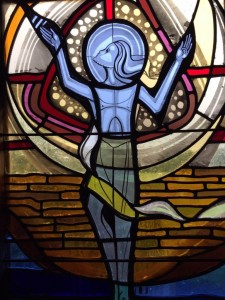


On 10 JULY 2015 Sister Federica Marchiori died at the community of Brescia.
On 14 July St. Camillus wanted to call to his side two of our religious sisters: Sister Jacinta Kannamkulathel 14 July Kerala, India (an Indian aged 63 with 33 years of religious profession). Sister Delfina Paolazzi 14 July Trento, Italy (an Italian aged 93, with 75 years of religious profession).
‘Now they live in Christ whom they met in the Church, followed in their vocations, and served in the sick and the suffering. Trusting that the Lord, the Holy Virgin our Queen, St. Camillus and our deceased religious brothers will welcome them in their midst, we commend them in our prayers, remembering them with affection, esteem and gratitude’.





